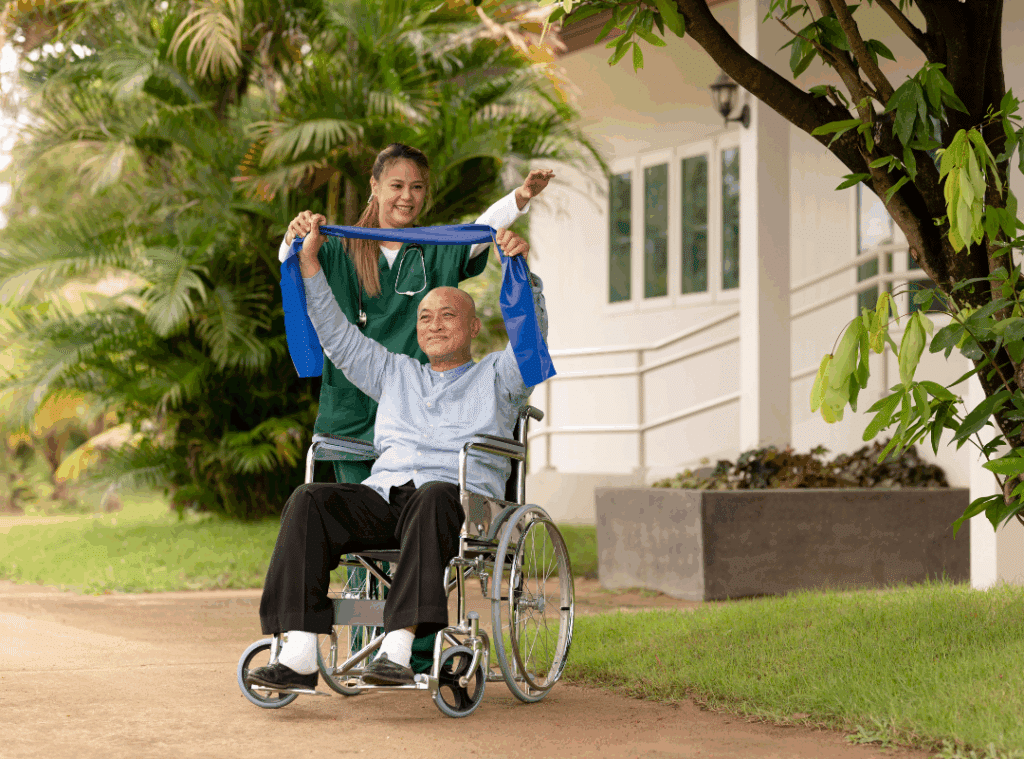Elderly group homes provide more than just care—they create a nurturing community where aging adults can thrive in comfort and companionship. Whether you’re looking for group homes for seniors near you or seeking a more intimate care solution for your loved ones, this option blends personalized attention with the warmth of a homelike setting.
Unlike traditional care facilities, elderly group homes foster social connections and individualized care, often at a more affordable rate. For families exploring options such as group homes for low-income seniors, these residences can offer an ideal balance of affordability, dignity, and support.
Understanding Elderly Group Homes
When researching elderly group homes, it’s essential to grasp how they differ from other senior care options. Typically designed for 5 to 10 residents, these homes provide a close-knit atmosphere with high staff-to-resident ratios. They comply with state group home regulations, ensuring the safety, quality, and consistency of care.
Residents in these settings often enjoy shared experiences and support systems, which can significantly boost their emotional and mental well-being. For a deeper dive into what to look for in care services and staff attention, explore this guide on staff-to-resident ratios.
Benefits of Choosing Group Homes
Choosing the right setting for your loved one is about more than services—it’s about community, comfort, and care. Group homes for seniors near you are often located in residential neighborhoods, offering a familiar and cozy environment.
With smaller communities, these homes create opportunities for companionship and meaningful relationships. For families researching private homes for elderly care, group homes strike a unique balance between privacy and social enrichment.
Explore how communal spaces enhance interaction and daily enjoyment in these care settings.
Personalized Care Options
Smaller homes offer more attentive care than larger facilities. This often includes customized services such as medication management, mobility assistance, and personal grooming. Families seeking group homes for low-income seniors can find options that still offer high-quality, individualized support.
Care plans are typically created with input from the resident and their family, ensuring a well-rounded, responsive approach. See how personalized care plans enhance senior care by involving family and staff in a collaborative effort.
Homelike Environment Benefits
Group homes feel like home, not an institution. From personalized bedrooms to shared living areas, the layout promotes comfort and ease. The environment supports familiarity and a sense of control for residents, particularly beneficial for those with memory concerns.
Providing private homes for elderly care offers seniors a dignified lifestyle while still allowing them to receive the necessary assistance. And with access to 24/7 onsite healthcare services, families can enjoy peace of mind.
Services and Amenities in Group Homes
Daily life in a group home is tailored to support independence while offering essential services. Personalized care plans ensure attention to individual routines, dietary preferences, and wellness needs.
For those seeking group homes for seniors near you, services like in-home cooking, planned activities, and transportation often come standard. The addition of memory care, physical therapy, or hospice coordination may be available depending on the facility. Learn more about specialized support through memory care services.
Personalized Care Plans
Every resident receives a tailored care plan. Here’s what’s typically included:
| Service | Details |
| Medication Support | Dosing, reminders, and prescription handling |
| Daily Hygiene | Bathing, grooming, and dressing assistance |
| Nutrition Planning | Custom meals and dietary adjustments |
| Social Programming | Games, outings, exercise, crafts |
This personalized approach, often found in private homes for elderly care, ensures emotional and physical well-being in a setting that feels safe and familiar.
Daily Living Support
Residents receive help with everyday tasks while maintaining independence. From assistance with dressing to help preparing meals, support is available when needed. This model is particularly beneficial for families considering group homes for low-income seniors, as it often includes comprehensive services within a fixed fee.
Staff also organize community-driven activities, helping seniors stay mentally and socially engaged, vital for overall quality of life.
Safety Features Provided
Safety remains a priority in elderly group homes. Key features include:
- Emergency alert systems
- Non-slip flooring and grab bars
- Secure entrances/exits
- Regular safety audits
- Trained emergency response staff
These elements ensure residents live confidently, knowing help is always nearby.

Cost Considerations and Payment Options
The senior group home cost varies depending on care level, location, and services. Typically, you can expect monthly rates to range from $2,500 to $6,000. The lower end of this range often applies to group homes for low-income seniors, while more customized services or upscale locations may cost more.
Payment options include:
- Medicaid or state-funded programs (in some states)
- Long-term care insurance
- VA benefits
- Private funds or home equity conversion
Make sure to confirm what services are included in the base fee to avoid hidden charges. Here’s a helpful external guide from A Place for Mom that breaks down typical expenses.
Daily Life and Activities in Group Homes
Group homes prioritize mental and emotional health through engagement. These are a few daily activity examples:
- Morning walks or chair yoga
- Craft-making or music therapy
- Board games or trivia nights
- Outdoor picnics or gardening
This supportive social environment enables seniors to maintain their independence while remaining connected to their community. For many, this is more fulfilling than living in isolation or in larger facilities.
Evaluating and Selecting the Right Group Home
When evaluating group homes for seniors near you, consider:
- Cleanliness and home atmosphere
- Staff credentials and communication
- Care plans and flexibility
- Accessibility for family visits
- Existing resident satisfaction
Tour multiple locations and ask detailed questions about care policies, emergency procedures, and day-to-day routines. Websites like Seniorly can help you compare homes based on cost, services, and reviews.
Building Community and Social Connections
One of the strongest benefits of elderly group homes is the ability to form real, meaningful relationships. Whether bonding over meals or joining a book club, these shared moments nurture emotional health.
Suggestions for fostering connection:
- Encourage family involvement in activities
- Celebrate birthdays and milestones as a group
- Introduce mentorship between newer and seasoned residents
- Facilitate multi-generational visits or school partnerships
These social outlets build a sense of purpose and joy for all residents.
A Home Where Your Loved One Thrives
Choosing the right care setting isn’t just a medical decision—it’s an emotional one. At Westmont of Cypress, your loved one will experience more than just attentive care—they’ll join a vibrant, supportive community.
From personalized support to engaging social opportunities, elderly group homes offer a unique blend of comfort and connection. Whether you’re comparing senior group home costs or looking into private homes for elderly care, this option can offer peace of mind and lasting satisfaction.
Schedule a visit today to learn more or reach out at 714-252-7144: Schedule a Tour.
How Do The Costs Of Moving Into A Quality Senior Care Community Compare With The Costs Of Staying At Home?Compare The Costs of Senior Living vs Staying at Home
Frequently Asked Questions
What is an elderly group home?
An elderly group home is a residential facility that provides care and support for seniors in a home-like setting. These homes typically house a small number of residents, usually between 4 and 10 individuals, to ensure personalized attention. Services often include help with daily activities, medication management, and meal preparation. Group homes offer a more intimate and family-oriented environment compared to larger nursing facilities.
What is the average cost of a group home?
The average cost of a group home for seniors ranges from $2,500 to $6,000 per month, depending on the location and level of care required. Factors like private or shared rooms, medical services, and amenities also influence pricing. Some homes may charge additional fees for specialized care, such as dementia support. It’s essential to compare costs and services across different group homes to find the best fit.
Are group homes covered by Medicare?
Medicare typically does not cover the cost of room and board in a group home. However, it may cover certain medical services provided by licensed healthcare professionals within the home. Seniors who qualify for Medicaid or other long-term care assistance programs may receive financial support for some aspects of group home care. It’s best to consult with a benefits advisor to explore all funding options.
What are the disadvantages of a group home?
While group homes offer a cozy environment, they may not provide the extensive medical care that larger facilities offer. Limited staffing can be a concern if residents require high levels of supervision or specialized care. Additionally, personal preferences for privacy or social interaction may not be fully met due to the communal setting. It’s important to assess individual needs and tour multiple homes before making a decision.








